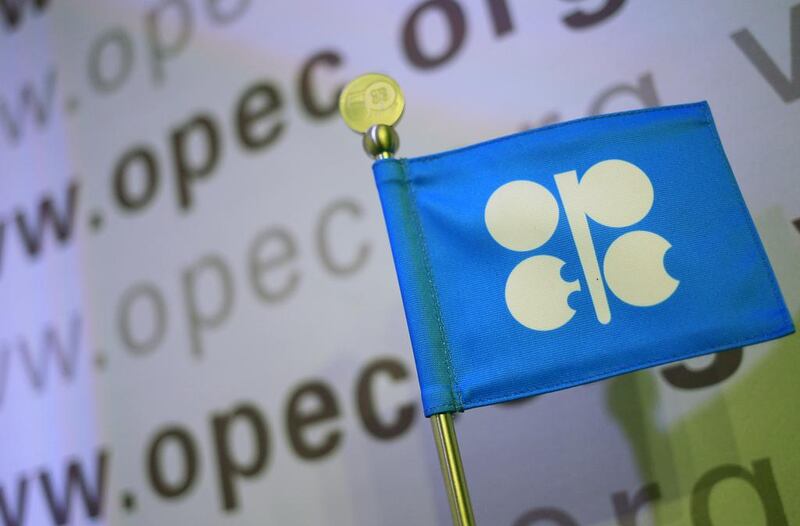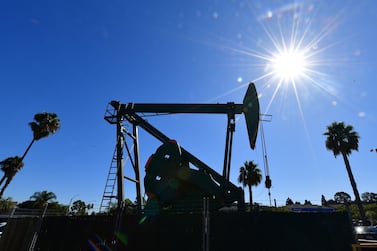Opec said several member states, and some of its allies in the Opec+ group, held a teleconference on Tuesday to discuss the plunge in oil prices caused by the Covid-19 pandemic.
West Texas Immediate, the US oil benchmark, on Monday plunged to minus $37.61, the first time in history the price was negative.
Opec tweeted that ministers held an "informal teleconference to brainstorm the current dramatic oil market situation" but it was not clear whether Saudi Arabia, the group's largest producer, took part.
After the collapse on Monday, US President Donald Trump said his administration was reviewing the possibility of stopping Saudi Arabian crude oil shipments entering the US to support the battered domestic industry.
A photo tweeted by Opec showed representatives from countries including Nigeria, Iraq and Venezuela taking part.
It said the teleconference was held at the initiative of Mohamed Arkab, Energy Minister of Algeria, which holds Opec's rotating presidency.
A spokeswoman for Russian Energy Minister Alexander Novak said Russia, the leader of Opec+, did not take part.
Mr Novak on Tuesday said there was no need to "dramatise" the current situation.
"Opec+ countries are carefully monitoring the situation and have all means to react, if need be," he said.
Opec said the ministers restated their "commitment to the oil production adjustment" agreed to this month, which involves a cut of 9.7 million barrels per day from May to try to stop prices plummeting.
Producers outside the alliance pledged to cut another 3.7 million bpd.
The pandemic has stifled global energy demand and worsened an oversupply problem, leading US crude futures down on Monday.
The 23 Opec+ nations intend to cut global supply by 10 per cent, but this has not cancelled the fall in demand.
“We continue to see extraordinary turmoil in oil markets in this Black April for the industry,” Fatih Birol, executive director of the International Energy Agency, said on Twitter.
“The Opec+ supply cut is a solid start but insufficient to rebalance the market immediately, due to the scale of the drop in demand.”
Opec said ministers were prepared to discuss the market situation regularly.








